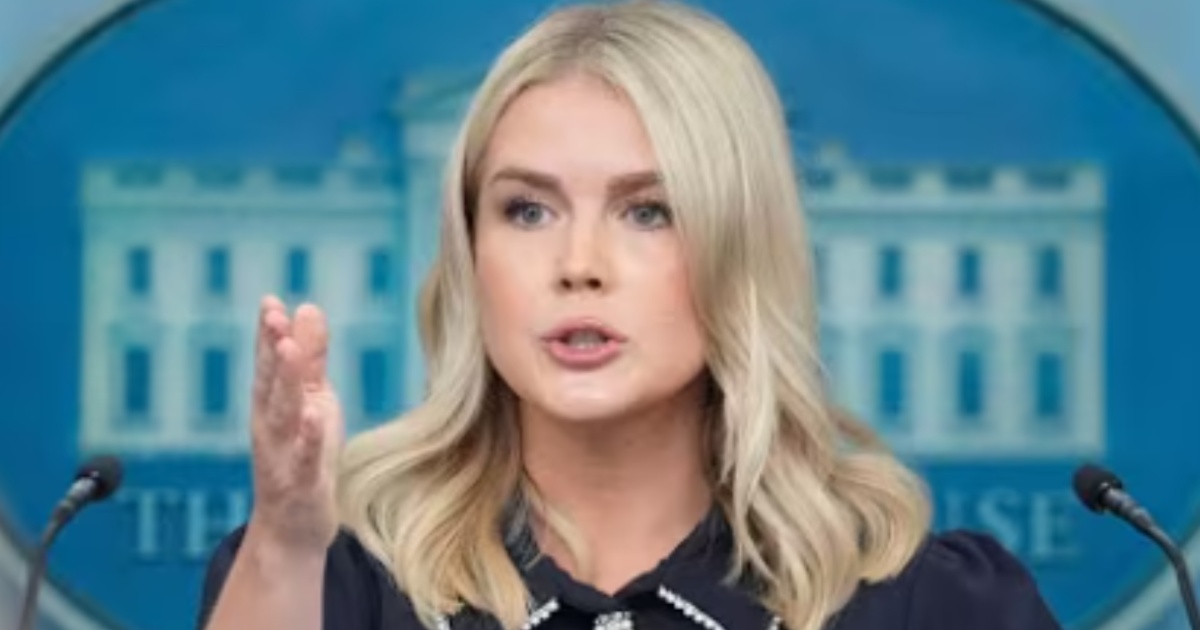Just days before a controversial summit with Vladimir Putin, President Donald Trump set off a wave of mockery and speculation by claiming he was heading to Russia, not Alaska, to meet the Russian leader.
The slip-up happened Monday during a routine appearance, when Trump said, “I’m going to see Putin. I’m going to Russia on Friday.” The remark immediately lit up social media and cable news.
Critics and online commentators wasted no time. “According to Trump, Alaska is in Russia. His dementia and cognitive decline are on full display,” one user wrote. Another jabbed, “Guess Alaska’s going back to Russia. Has the Trump administration just announced they’ve ceded it?” A third piled on: “This is what dementia looks like.” For many, the gaffe was too glaring to overlook, especially ahead of an event meant to showcase Trump’s leadership on the world stage.
Press secretary Karoline Leavitt was left to clean up the mess. When asked if Trump truly meant to go to Russia or had simply misspoken, she carefully replied, “Perhaps there are plans in the future to travel to Russia.” She then clarified, “On Friday, the president will be meeting with the Russian president, Vladimir Putin, in Alaska, as you know.” While her answer brought the focus back to the facts, the correction couldn’t undo the viral buzz already in motion.
Reporter: Trump said twice that he planned to go to Russia, was that a slip up or does he plan to go to Russia?
Leavitt: Perhaps there are plans in the future to go to Russia. On Friday, he will be meeting with Vladimir Putin in Alaska. pic.twitter.com/lY0YNcbEJL
— Acyn (@Acyn) August 12, 2025
The summit, scheduled for August 15 in Anchorage, Alaska, is far from a ceremonial meet-and-greet. It’s expected to tackle delicate diplomatic issues, including the war in Ukraine and controversial ideas for potential territorial compromises. Supporters of the president view the meeting as a bold move to reset strained U.S.-Russia relations, while critics see it as another example of Trump cozying up to Putin.
Still, the Alaska-Russia mix-up has overshadowed the summit’s substance, fueling what many are now calling “dementia rumors.” One critic quipped, “Trump can’t decide if he’s President of the United States or Putin’s travel agent. And somehow, the Kremlin never needs to guess where his loyalty lies.” Another simply dubbed him “Dementia Don,” a nickname now making the rounds online.
Political observers warn that verbal slip-ups like this could undermine the administration’s message and distract from its policy goals. While White House staffers insist the president remains sharp and focused, the repeated need for his press team to clarify statements has become a recurring storyline.
Whether the incident was an innocent gaffe or a symptom of something more serious, the reaction has been swift and relentless. For now, Trump is pushing ahead with preparations for the Alaska meeting, while Leavitt and the rest of the White House communications team work to keep the focus on the administration’s agenda rather than its verbal stumbles.
As the summit draws near, all eyes will be on Anchorage and on Trump to see whether the meeting with Putin delivers results or becomes just another headline in a presidency already packed with them.
Adding to the uproar is the glaring absence of Ukraine from the guest list. The Anchorage summit is set to be a face-to-face between Trump and Putin only, with no Ukrainian representation at the table.
That decision has sparked outrage from Kyiv and from U.S. lawmakers on both sides of the aisle, who say it sends the wrong signal at a critical moment in the war. Critics argue that holding talks about the conflict without Ukraine’s input undermines its sovereignty, while Trump allies insist it’s a strategic move to cut through the diplomatic theater and negotiate directly with Putin.









